INTRODUCTION
To follow is Chapter 3 in a series that is my personal tranformative journey from my early years. This story began with me living as a long term unemployed single parent with two children with different fathers, never being married. I was definitely on the bottom rung of society. I lived in the highest unemployed town in the UK with the demise of its Iron and Steel, Chemical and Shipbuilding industries, thus experiencing years of poverty and ostracisation. This is the story of how, supported by a strong Christian faith, I deeply analysed and navigated my way through it all, to an absolutely fulfilling life.
In the light of what’s happening in this chaotic world today, I feel moved to tell my story with all its different facets, because my main hope is that the reader will see the human face of the marginalised. Then, hopefully, gain a more compassionate understanding of all those who live on the margins of society. I hope the reader finds clues on how to make connections with people different from them, or to change the top down competitive economic system so all people are justly valued whether they were in paid work or out of paid work.
I invite the reader to pick any chapter and, if it resonates with you, to organise a zoom working group in the New Republic of the Heart community to discuss and explore any particular issue or let it inform the work you are already doing.
I acknowledge that every single one of us has our own unique experience from our own unique perspective waiting to be heard and learned from. This is simply my experience. I’d love to maybe one day hear and learn from yours.
Linda Granville
To read Chapter 2, click HERE.
◊◊◊◊◊◊◊◊◊◊◊◊◊◊◊◊◊◊◊◊◊◊◊◊◊◊◊◊◊◊◊◊
CHAPTER 3 ~ EXPERIENCE OF PREJUDICE
And Ways to Combat It
About 25 years ago I joined with National Church Action on Poverty’s ‘Local People National Voice’ campaign. About forty local hearings were set up across the UK for people in poverty to have centre stage and to tell their story in front of local politicians, business people and church leaders.
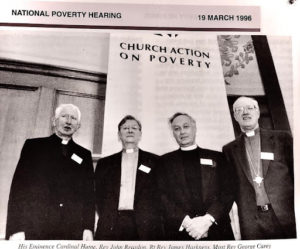 This accumulated into an 800-delegate poverty hearing at Church House in London in front of national church leaders, politicians and business people. I was asked to speak at the Teesside and National Poverty Hearing. Among other things, I spoke about Citizens Income and The Part Time Jobs Opportunities programme. I also spoke about the unjust structures that made unemployed people lose their benefits if they worked on a LETS Scheme, now called a Timebank.
This accumulated into an 800-delegate poverty hearing at Church House in London in front of national church leaders, politicians and business people. I was asked to speak at the Teesside and National Poverty Hearing. Among other things, I spoke about Citizens Income and The Part Time Jobs Opportunities programme. I also spoke about the unjust structures that made unemployed people lose their benefits if they worked on a LETS Scheme, now called a Timebank.
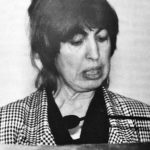 After this I was invited by The Churches Together for Britain and Ireland (CTBI) to speak at their National Conference on ‘The Future of Work’. I had to make three train journeys to get to the conference centre in Swanwick, Derbyshire. The first train took me from Middlesbrough to York. It only had three carriages, all completely empty except for me and my young daughter, Georgia, who sat at the table opposite to me. A man then climbed on board the train. Of all those empty seats, he came and sat next to me on the aisle opposite. Then he started, “Those teenagers don’t want work. They’re lazy! They’re scroungers! And worst of all are those single parents, especially those with kids with different fathers! They only get pregnant to get a roof over their head!”
After this I was invited by The Churches Together for Britain and Ireland (CTBI) to speak at their National Conference on ‘The Future of Work’. I had to make three train journeys to get to the conference centre in Swanwick, Derbyshire. The first train took me from Middlesbrough to York. It only had three carriages, all completely empty except for me and my young daughter, Georgia, who sat at the table opposite to me. A man then climbed on board the train. Of all those empty seats, he came and sat next to me on the aisle opposite. Then he started, “Those teenagers don’t want work. They’re lazy! They’re scroungers! And worst of all are those single parents, especially those with kids with different fathers! They only get pregnant to get a roof over their head!”
I smiled to myself thinking, “here we go again”. I listened to his ramblings, but also listened more closely to his grievances about working 62 hours a week for a pittance of a pay. It had taken him years to save up enough money to make this journey he was now on to see his son in Israel. I actually felt quite sorry for him and told him so. I gently continued, ”Oh by the way, I’m a single parent. I’ve got two children with different fathers and I’ve never been married.” “Oh I don’t mean you,” he retorted. “You’re a nice lady.” I gently replied, “Yes, it’s true I am a nice lady, but you do mean me.”
The irony about this journey was that the train got stuck for one hour outside York station and there I was with him for an extra hour. During that hour the exact same conversation was exchanged twice more. It was then that I realised my daughter had hidden herself under the table, and I worried how she was feeling after listening to all the bigotry. When the train finally landed at York Station, he was the first to reach the door to get off the train. He turned to me and said, “Definitely, I’ll be sure to think twice about what I say about single parents from now on.” I thought to myself, “Well, this journey was worth having.” As he stepped off the train, he turned again and said, “I suppose … after all the negative things I’ve said about single parents … we could never be friends?” I replied, “Excuse me but… we were never enemies,” and my daughter and I dashed for our next train.
When we finally reached the Swanwick Conference Centre it was time for the evening meal. I was due to speak immediately after the meal. My daughter was ushered to a children’s crèche where she had something to eat. The dining hall had two lines of long tables and each table held ten people. I sat on a table with people from Church Action on Poverty (CAP) and some others. To my left was CAP’s National Coordinator. Across the table opposite him was David Cross, CAP’s co-ordinator of all the National Poverty Hearings that had recently taken place. David was a friend of mine. We attended the same local CAP meetings together. On my right was CAP’s Parliamentary Liaison Officer and opposite her was a man I didn’t know. The man that I didn’t know started a conversation in a very deep slow articulated voice. “Did anybody here have a ‘Poverty Hearing?” He obviously didn’t know who David was. Somebody at the table said, “Yes, we did.” The man then asked, ”And did you have one of those single parents?” Then my ears pricked up and David gave me a glance from across the table. The man continued in his slow deep posh voice, ”Oh we had a single parent, a proper one. She was one of those poor widows. Mind you…I wouldn’t have bothered with those that brreeeed like fleeeas in high rise tenement flats.” This man was a bishop! Months later I learned that he had been excommunicated from the church.
When I was looking for a cartoon to go in a previous chapter of my book, I suddenly noticed the cartoon was published by Church Action on Poverty. I am convinced CAP published it because of this incident.
Three weeks after speaking at the London hearing, and two weeks after speaking at the CTBI conference, I received a call from the TV producer of the ‘Kilroy Show’ and was led to believe that he wanted me to talk about the LETS income support campaign. I didn’t particularly want to go on TV, but then thought it would be a good idea to get publicity.
It wasn’t until I arrived in the television studio just before the cameras began to roll that a slow realisation revealed the title of the Kilroy Programme: “People Who Cheat the Benefit System.” I couldn’t believe it! Just because I was a single parent on the dole, I was automatically assumed to cheat the system!
The studio audience was full of single parents, asylum seekers and young unemployed teenagers as well as those who opposed them. We were the very people, the poorest in society, whose benefits had been cut that week by the government…and we were there to defend ourselves! They were setting poor against poor. Frank Field, a labour government Cabinet Minister, was in the studio audience. Kilroy asked him, “How much do single parents cost your constituency?” Frank Field replied, “About twelve million pounds a year.” I was shouted down in front of millions of viewers by somebody pointing straight at me yelling, ”You’re a scrounging single parent…I pay tax so people like you can sit at home all nicey nicey looking after your kids!”
Everybody jeered. I immediately spoke up and said, “I belong to the second largest industry in Britain, the unpaid workers sector, and if that work was paid for, it would be worth £41 billion annually to the British economy.” Actually, it was much more! Kilroy turned to Frank Field and simply said, “She’s got a point there, hasn’t she?” At this point I wanted to go on and tell them of all the voluntary work I did, and maybe get to talk about the Time Bank income support issue, but Kilroy immediately changed the subject.
I inadvertently revealed lots of deeply private things about myself in front of literally millions of viewers to try and defend myself. I couldn’t stop weeping on the train home – absolutely wide open, laid bare and drained.
This and other personal bigoted incidents, too many to mention here, actually eventually gave me energy. I realised that prejudice was simply people taking on their ‘significant others’ negative value statements, mixed with a lack of non judgemental communication, to get to know ‘the other’.
This energised me to make contact, off my own bat, with every marginalised group I could think of in Teesside: minority ethnic, gays, lesbians, unemployed, single parents, asylum seekers, transgender, travellers, disabled and I visited gypsy camps…in fact anybody who was seen by society as subordinate. Sixty people came together in a United Reformed Church hall in Stockton, including young people from the local senior school, simply to listen to each other’s stories and make an attempt to understand each other and cross prejudicial barriers.
For nearly every one of us, these barriers very much negatively affected our economic status in society.We were the scapegoats for many draconian economic policies and took the brunt of the so-called ‘deserving and undeserving poor’ syndrome.
I kept on firmly believing in the Biblical quote: Romans 8: 31-end, which started, “If God is for us who can be against us,” and it finished, “Nothing in all creation will ever be able to separate ANY of us from the love of God in Jesus Christ our Lord.”
Moralistic judgements were always intrinsically bound up with the economy. August 22nd, 1994. John Redwood, (this time) a Conservative minister suggested single parents should get their children adopted and benefits reduced.
A TV programme (‘Newsnight’ with Jeremy Paxman) polled a TV audience on whether or not they agreed. Shockingly 80% agreed. I worried how society had evolved such dispassionate conclusions.
“Social structures and divisions are held in place by a multitude of assumptions learned from birth. These work as an internal policing system to instil conformity just as powerfully as an external force would do, perhaps even more powerfully because they are less likely to be recognised or questioned, therefore less likely to be resisted.”
( Russell, H. ‘Poverty Close to Home’ 1995:p62)
“Research indicates that maladjustment and crime are not linked to being illegitimate or from a broken home but with deprivation.”
( Russell, H. ‘Poverty Close to Home’ 1995:p169)
I didn’t have a clue what would happen to that wonderfully diverse group next. The fact that we had listened to each other at that point was all I could think of.
Fortunately, soon after this, I was asked, with other unemployed people from Respond!, to represent ‘Respond!’ to join the ‘Kairos UK’ group to go to the Second European Ecumenical Assembly in Graz, Austria. We became part of the Kairos UK planning committee which organised a sixty strong delegation from Britain to attend. This coincided with the European Bishops conference that also met in Graz at the same time.
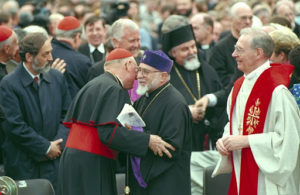 Ten thousand Christians from all across Europe gathered for a week to explore the themes of ‘Reconciliation’; reconciliation of the Environment, Unemployment, Prejudice, Racism and Refugees.
Ten thousand Christians from all across Europe gathered for a week to explore the themes of ‘Reconciliation’; reconciliation of the Environment, Unemployment, Prejudice, Racism and Refugees. 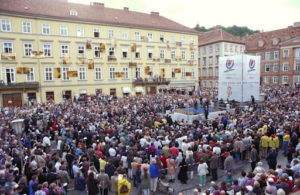 I heard that some of the poorest in Europe had walked across different countries for hundreds of miles to be there.
I heard that some of the poorest in Europe had walked across different countries for hundreds of miles to be there.
Before the delegation went to Graz, with Kairos UK I attended a preparation meeting on the Broadwater Farm Estate in London (an estate which had become infamous by previously experiencing street riots). Also in the group were some people from Nechells in Birmingham, people from ‘Grassroots’ based in Luton, unemployed people from Leeds and Middlesbrough.
The preparation for Graz included the local groups spending several weekly meetings in their own locality thinking about their own experiences, and identifying the important visions and values they wished to share with others. Of the sixty UK people that visited Graz, twenty three were of different cultures, and ten of different faiths. The richness of being among a diverse community was experienced and valued. Some unemployed from Northern Ireland joined us too. For many it was their first time they had met other marginalised groups from across Europe. We all learned from their and each other’s experiences. Each local group was asked to translate their experiences of oppression and their vision for the future into mime. We all then met together on Broadwater Farm Estate to put these short mimes together into one longer presentation of mime. A simple beautiful musical chant linked the mimes together. We chose mime so there would be no language barrier.
We presented this drama many times over the week in the form of ‘Street Theatre’ on the streets of Graz. We then encouraged the audiences to have discussions on the issues raised, sometimes with our own interpreters, but often interpreted from the crowds watching. Different groups brought different issues. We from the north east brought personal issues of unemployment. Our mime was depicted wearing white face masks to indicate the palpable feelings of invisibility and also ostracisation from the mainstream of society. This is what a lot of long term unemployed people still feel even to this day.
The Broadwater Farm group brought personal issues of discrimination, especially toward Afro Caribbean people in a predominantly ‘white’ church, to the estate. The mime depicted an incident that had happened years beforehand of an African Caribbean Woman being evicted from the front pews of the church and sent to the back of the church by the white minister’s wife. Both the African Caribbean woman, Pearl, and the white ministers wife, Marjorie, who were involved in the original discrimination, took part in the drama as well as other people from their congregation. Their mime finished very poignantly and powerfully depicting Sister Eileen, an Anglican nun who at the time of going to Graz, lived on the estate. She dressed as a clown with a short bright yellow curly wig and a shiny red nose that bridged the gap between them, all holding hands with each other encircling a large cross. This in itself seemed to me to be a final healing time for everyone.
Sister Eileen kept her clown costume on all week and wore it while mingling among the crowds. She told us that it was a great catalyst to stop and talk to the many strangers and ask them how they were. She told us of one incident when she had stopped one man and he started to weep on her shoulder. He said, “I’ve walked miles to get here and I’ve been here four days and you are the first person to speak to me. I’ve felt so lonely…..and you’re a clown!”
I learned something from this. It struck me how many strangers I passed on the street back home or sat next to on a bus in silence, not knowing some may be desperate to communicate. Maybe from now on, I will pretend to be a clown, which may undo my inhibitions (without the costume, maybe!). There are a lot of lonely people out there.
The Nechell’s group, mainly made up of African Caribbean, African men, and Asian women, brought personal issues around asylum seekers.
I was horrified when one Sudanese asylum seeker in that group told me of the tortures happening in his country.
Apparently, he had been in the Sudanese government and had to escape torture himself. He told me of how, when in Sudan, he regularly saw chopped up body parts floating from a riverside building down a chute into the river.
In one of our group discussions I happened to read out my poem, ‘The Tree’ (as seen in Chapter 1 of this book), that I had composed years before. He asked for a copy of it. Later I was very humbled after he sought me out to tell me that my poem had given him hope for his country.
The Luton group did a lot of administrative work as well as being extras in the drama. In Graz there were workshops on all different issues taking place all over the city. There were many church services too, some led by Brother Roger, founder of the famous Taize’ Catholic Retreat Centre in Taize, France.
I went to Graz to mainly explore unemployment issues. It felt ironic that many so-called professionals, politicians and bishops from across Europe in a workshop I was in, were transfixed by the ideas of this long term unemployed single-parent dole-scrounger giving clues on the future of work.
However, I found a workshop on the very outskirts of the city which was quite difficult to find. I entered a very crowded large room where an interactive workshop on ‘Welcoming Diversity and Eliminating Prejudice, run by the National Coalition-Building Institute, was taking place. There were so many participants that they had to open up another adjoining room to allow more people to take part.
I’ve always been curious on why this particular workshop was so out of the way from the city centre and other workshops. The number of people attending proved how popular this ‘Welcoming Diversity and Eliminating Prejudice’ workshop was. It brought together all marginalised people, gay, ethnic minority, lesbian, people with ability challenges, single parents, asylum seekers, transgender, elderly and young homeless, unemployed and people of different faiths. These were alongside business people, politicians, police, prison officers, statutory bodies etc. I was profoundly moved by the experience.
One of the first exercises in the workshop was to pick a partner who had a different identity to me. My partner had to say an identity that neither of us had in common. I then had to say the first word that came into my head and vice versa. The word he said was ‘disabled.’ I quickly answered ‘freak’
I was absolutely shocked with myself and momentarily my mind went back to Iris, my best friend at home in a wheelchair. Suddenly a big thud wrenched my stomach. I realised this was not outside myself…I was the disabled one. I was the ‘freak’! I had internalised the years of bigotry and ostracisation that society had put onto me. I wept for days after.
As well as touching deep emotions within myself, the young Swiss facilitator, translating in three languages, revealed he was gay as the workshop evolved. Days later I met him on a tram and congratulated him on his fantastic workshop. I asked him whether he had gotten as much out of it as I had while he facilitated it. He replied, “I was a bit worried about this one, Linda, because I knew I’d be talking to a room full of Christians!” When I realised what he implied, I found that statement to be so, so sad.
I immediately went home and a United Reformed Church minister offered to write a funding bid for me to train with the same international organisation, then based in Leicester UK, to set up ‘Welcoming Diversity and Eliminating Prejudice’ workshops in Teesside. I felt these award winning workshops could go toward eliminating institutional racism. International Coalition-Building Institute had already been successful in using this workshop to deal with institutional racism within the Chicago Police Force in America.
About thirty of the group, including myself, that had met to go to Graz, met again six months later in Birmingham and planned to contribute to ‘Common Ground’, the ‘Alternative Summit’ that took place in Cardiff in June 1998. This happened at the same time that the European Leaders Summit took place in Cardiff. Around 400 to 500 people attended over the four days. Twelve workshops at the Alternative Summit included those on Poverty in Wales, Environmental issues, Fair Trade campaign, and Unemployment and Racism.The Kairos group hosted a consultation with twenty representatives of similar groups from other parts of Europe. I remember that some people from other parts of the world including those from Brazil and Africa joined the ‘Alternative’ summit. Some refused to eat the lavish food that was offered to everybody. They refused because they said they couldn’t possibly eat this food while others in their country were starving.
Representatives from ‘The Alternative Summit‘ then presented their findings at the European Leaders Summit.
Nelson Mandela joined the EU Leaders Summit on it’s last day.
In the mean time, back home I trained to be a counsellor to rape victims, drug addicts and those with chronic illnesses and disabilities. I trained to teach English to those who couldn’t speak English. I worked with the homeless, and besides working with Teesside Homeless Action Group, I was on the founder membership of ‘Teesside Nightstop’ where I gave emergency short stay accommodations to homeless 16-25 year olds. I continued to work and campaign with the LETS scheme. All as a volunteer.
The United Reformed Church recognised the years of volunteer work that I had done. I was asked to stop everything I was doing and they paid for my three year college fees to be a Church Related Community Worker.
It was just at this point while attending college that I received a phone call from the National Local Exchange and Trading Scheme co-ordinator congratulating me on the part I played in the benefits campaign. The four year campaign for unemployed people not to lose their benefit if joining a Time Bank had finally been WON! Here then was JUSTICE for all those volunteer and home workers who gave their time freely for nothing, but struggled hard having nothing for themselves.
Then, after three years of training in ‘Contextual Theology’ and Community Development work, I finally got paid for doing the work I did for 18 years for nothing. However, I learned to analyse more deeply the reasons for my and others’ situations.
To read Chapter 2, click HERE.

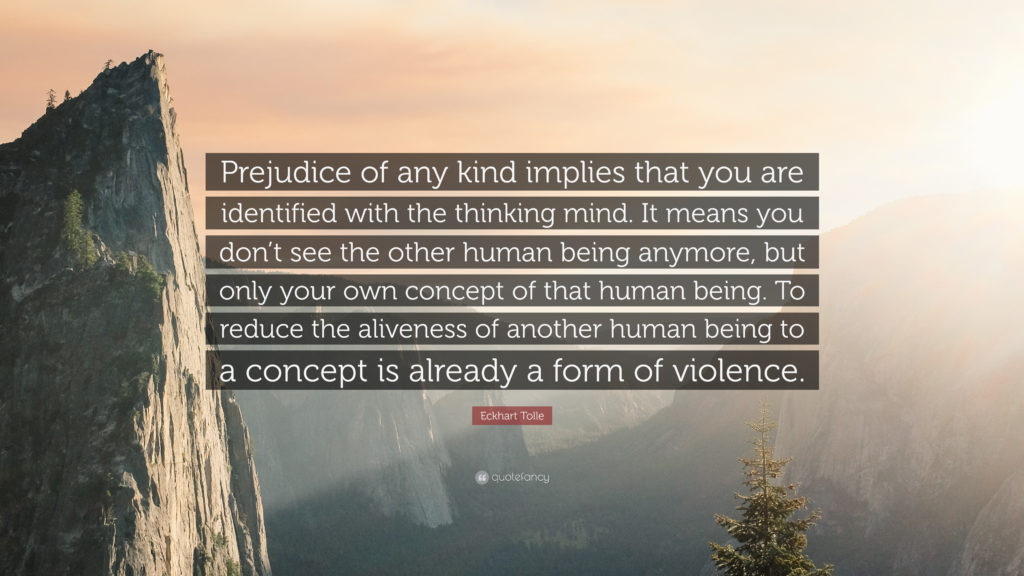
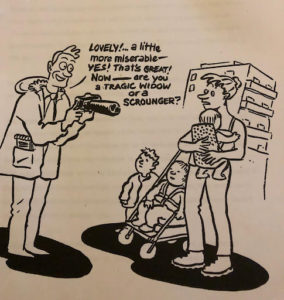

0 Comments